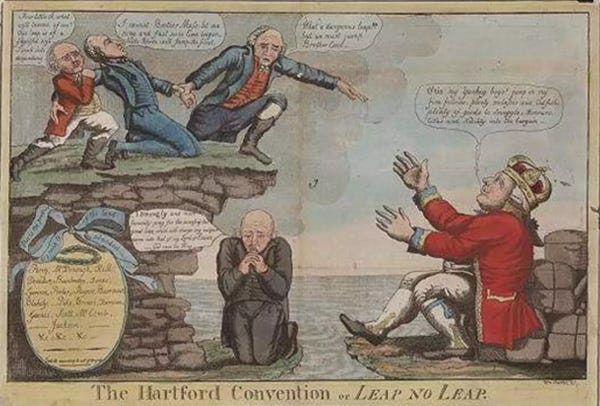The yankees Who Wanted Back With King George
New England Yankee Hypocrisy On Secession
The early 19th century in America was a period marked by significant tension and debate over the direction and integrity of the young Union. These debates were especially concentrated in the New England States, where Yankee dissatisfaction was brewing over federal policies perceived as detrimental to regional interests.
One of the key figures in this discourse was John Quincy Adams, who, despite his support for the Embargo Act of 1807, recognized the growing discontent in New England. In a private communication to President Jefferson in February 1809, Adams highlighted that the continuation of this policy might push New England towards secession. In acknowledgment of this potential threat to unity, the administration chose to repeal the embargo, instituting the Non-Intercourse Act as a replacement.
During this time, the Republic’s identity and sense of unity were still developing, and threats of Secession were a regular feature of political life. Notably, these threats were primarily emanating from New England and were driven by concerns unrelated to slavery, which had yet to dominate the national agenda. The crux of the issue for New England was the fear of losing political power and influence within the federal government to other emerging regions, as embodied in their reaction to the proposed admission of Louisiana as a state in 1811. Josiah Quincy eloquently expressed this anxiety, questioning the wisdom of extending federal authority and integrating lands acquired through the Louisiana Purchase.
Josiah Quincy famously argued:
“Why, sir, I have already heard of six States, and some say there will be at…


